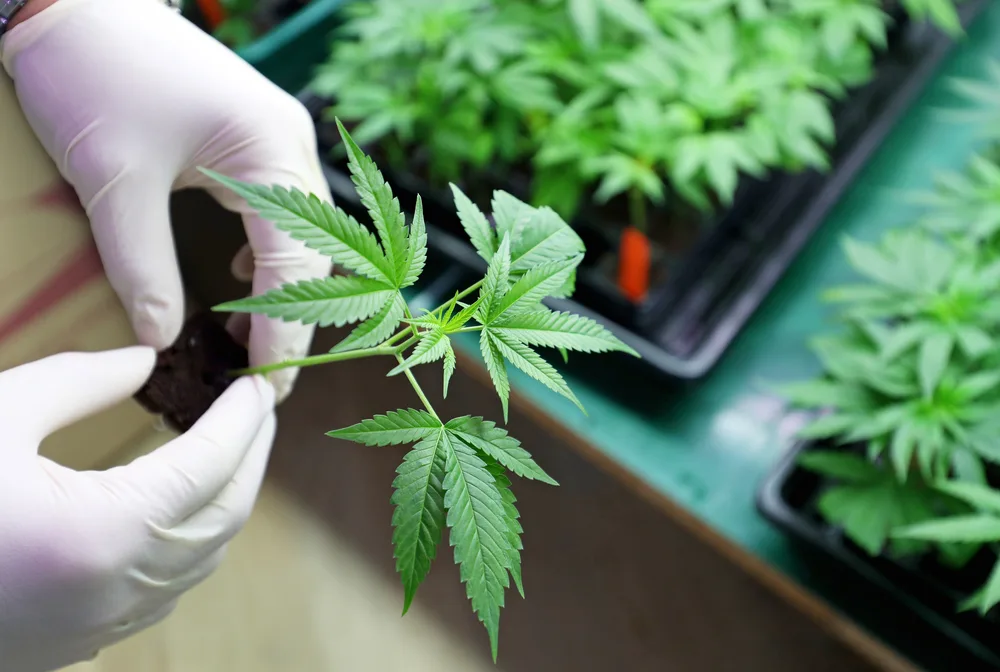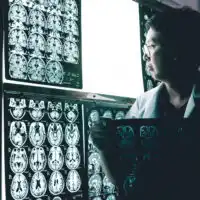Once dismissed as a counterculture indulgence, marijuana has rapidly transformed into a mainstream staple—from vape pens in gym bags to edibles on wellness shelves. With legalization gaining ground and claims of medicinal benefits on the rise, it’s easy to see why cannabis is riding a high in public perception. But behind the haze of popularity, new research is quietly sending up warning signals.
A recent study is now challenging the notion that marijuana is entirely harmless, especially when it comes to brain health. Could a plant so often associated with relaxation and relief be hiding long-term consequences we’re only beginning to understand?
If you’re someone who uses cannabis—or knows someone who does—what unfolds next might surprise you. Let’s take a closer look.
The Study at a Glance
In the sea of wellness headlines, this one makes a splash: a study published in JAMA Neurology has found a striking connection between cannabis-related medical emergencies and an increased risk of developing dementia within five years. That’s not just a minor statistical bump—it’s a red flag that’s catching the attention of the medical community.
Researchers analyzed data from individuals who had experienced cannabis-related emergency room visits or hospitalizations. What they found was troubling:
- These individuals had a 23% higher risk of developing dementia within five years, compared to those who visited the hospital for unrelated reasons.
- When compared to the general population, the dementia risk surged to 72%.
And before you assume other health factors were to blame, the study was meticulous in accounting for variables like age, sex, mental health conditions, substance use, and chronic illnesses like diabetes or heart disease.
One of the study’s co-authors, Dr. Daniel Myran of the University of Ottawa, emphasized that this doesn’t prove cannabis directly causes dementia—but the pattern is impossible to ignore. As he put it, “This is a study that brings up a concerning association that fits within a growing body of research.”
Why This Matters
Let’s face it—dementia isn’t a condition most people associate with marijuana use. The conversation around cannabis is often dominated by its potential to ease anxiety, relieve chronic pain, or help with sleep. Rarely does the spotlight land on what it might be doing to our long-term brain health.
But here’s why this study matters: dementia is not just forgetfulness—it’s a progressive, debilitating condition that impacts memory, reasoning, behavior, and the ability to live independently. It’s also on the rise globally, with no known cure. So, when a popular substance is linked to a higher risk of developing it, even indirectly, that’s a public health concern that demands attention.
The study doesn’t stand alone either—it builds on earlier research suggesting that long-term cannabis use can shrink parts of the brain associated with memory and learning, particularly the hippocampus. That’s the same region heavily affected in early Alzheimer’s disease.
Add to that the fact that cannabis-related emergency visits are already more common among regular users, and you start to see a pattern emerging: a substance once considered relatively harmless may carry more neurological baggage than previously thought.
This isn’t about panic—it’s about perspective. Understanding the risks allows users to make informed choices, especially as marijuana becomes more normalized and accessible. Whether you’re a recreational user, a medical patient, or someone simply curious about cannabis culture, knowing what’s at stake can shape healthier, smarter decisions.
What Is Cannabis Use Disorder?
As marijuana use becomes more socially accepted and accessible, it’s easy to overlook the fine line between casual use and dependency. But there’s a clinical term for when that line gets crossed: Cannabis Use Disorder (CUD)—and it’s more common than many realize.
Cannabis Use Disorder is defined by a problematic pattern of marijuana use that leads to significant impairment or distress. It ranges from mild habits that interfere with daily life to full-blown addiction. And unlike the stereotypical image of a carefree stoner, CUD isn’t always easy to spot from the outside.
People with CUD may find themselves using cannabis more often than intended, struggling to cut down despite wanting to, or continuing to use it even when it’s causing problems in relationships, work, or health. Over time, the brain’s reward system adapts, reinforcing the compulsion to use—and making it increasingly difficult to stop.
Dr. Robert Page II, a professor of clinical pharmacy at the University of Colorado, describes it this way: “When they stop using it, they either have withdrawal symptoms or experience severe mental health symptoms like depression and anxiety.” In some cases, these symptoms become so intense they lead to emergency room visits.
And here’s the kicker: according to the CDC, about 3 in 10 marijuana users may develop CUD. That’s nearly a third of all users—a statistic that flies in the face of the “it’s just a plant” mentality.
Even more concerning? CUD tends to be underdiagnosed and often brushed off as harmless. But as this and other studies show, when cannabis use spirals into dependence, it can carry serious long-term health risks, including the possibility of cognitive decline.
The Fine Print: Association vs. Causation
Before jumping to conclusions or flushing your stash, it’s important to understand one key scientific nuance: this study shows an association, not direct causation. That means researchers aren’t saying cannabis use causes dementia—just that there’s a statistically significant connection worth paying close attention to.
In research, this distinction matters. A lot.
Many factors can contribute to dementia, including genetics, cardiovascular health, chronic illnesses, and mental health conditions. While the recent study carefully accounted for these variables—such as age, sex, diabetes, substance use, and psychiatric history—it can’t rule out every possible explanation.
Think of it like this: if cannabis-related emergencies are a red flag, dementia might be the iceberg just below the surface. But we’re still figuring out how big that iceberg really is.
Even one of the study’s authors, Dr. Daniel Myran, emphasized this point, saying the findings shouldn’t be taken as definitive proof but rather as a serious signal that more research is urgently needed. It’s not a final verdict—it’s a warning light on the dashboard.
Still, when that warning light appears, ignoring it isn’t the smart move. The study fits within a broader pattern of research suggesting that frequent or problematic cannabis use could impact brain structure and function over time. Whether that means direct harm or vulnerability to other triggers, the message is clear: this isn’t a risk-free habit.
Is Medical Marijuana Still Safe?
For many patients, medical marijuana has been a game-changer—a natural alternative to opioids, a lifeline for managing chronic pain, epilepsy, or the side effects of chemotherapy. And in carefully monitored doses, under medical supervision, it can offer real relief. But that doesn’t mean it’s without risks.
It’s important to remember that “natural” doesn’t always mean “safe.” Medical marijuana products often contain THC (tetrahydrocannabinol), the same psychoactive compound found in recreational cannabis. While low-THC formulations are sometimes used, many prescriptions—especially for severe symptoms—still rely on higher concentrations. This is where the balance between benefit and risk becomes tricky.
According to Studies, the side effects of medical marijuana can include:
- Increased heart rate
- Dizziness or lightheadedness
- Slower reaction times
- Impaired memory and cognitive function
- Hallucinations or panic attacks in higher doses
- Higher risk of heart attack or stroke, especially in those with pre-existing conditions
And now, with emerging research hinting at a link between cannabis-related emergencies and dementia, it raises the question: Are we underestimating the long-term cognitive toll?
That doesn’t mean people should abandon medical marijuana altogether. But it does mean conversations with healthcare providers should be more comprehensive—especially for patients with risk factors like a family history of dementia or existing mental health issues.
As Dr. Robert Page puts it, “It is a psychotropic medication, so it’s going to have psychotropic effects. If you have underlying psychiatric issues, realize that you need to be transparent with your provider and let them know if you’re using this medically or recreationally.”
What You Can Do: Tips for Safer Cannabis Use
Using cannabis doesn’t automatically lead to harm—but how you use it matters. With growing evidence linking cannabis-related emergencies to potential cognitive risks, here are five ways to use it more responsibly:
- Use in moderation: Regular, high-dose cannabis use is linked to increased risk of dependency and cognitive decline. Try to limit use to occasional or medically necessary situations. Daily or heavy use, especially in younger individuals, can affect brain development and long-term memory.
- Understand the potency: Not all cannabis is the same. Products with high THC content are more likely to cause psychoactive effects and may contribute to long-term neurological changes. Aim for balanced or lower-THC products, and be aware of how different strains affect you.
- Choose safer delivery methods: Smoking cannabis can harm your lungs and cardiovascular system. Consider alternatives like edibles, tinctures, or vaporizers that eliminate combustion and reduce exposure to harmful byproducts.
- Pay attention to mental health: Cannabis can amplify existing anxiety, depression, or psychosis in vulnerable individuals. If you notice changes in your mood, motivation, or thought patterns, take it seriously. Seek help before it escalates into something harder to manage.
- Be transparent with your healthcare provider: If you’re using cannabis—especially for medical reasons—talk openly with your doctor. This ensures it won’t interfere with other treatments and allows for better monitoring if you have a family history of dementia, heart disease, or mental health conditions.
You don’t have to quit cannabis to stay safe—but you do need to stay informed. Responsible use means knowing your limits, watching for warning signs, and treating cannabis with the same caution you’d apply to any substance that affects the brain. Your future self—clear-minded and healthy—will thank you.
Think Before You Toke
As cannabis continues its transformation from taboo to trendy, the conversation around its risks is only just beginning to catch up. While the plant offers real therapeutic potential, especially when used mindfully and medically, we can’t afford to ignore the red flags—especially those tied to something as serious and life-altering as dementia.
The recent study isn’t the final word, but it is a critical reminder: “natural” doesn’t always mean safe, and long-term brain health is too important to gamble with. For the growing number of people embracing cannabis as part of their lifestyle, the challenge now is to strike a balance between open-mindedness and caution.
Informed decisions don’t come from hype—they come from facts, context, and a willingness to look at the full picture, even when it’s inconvenient.
So before your next puff, gummy, or prescription refill, take a moment to think long-term. The best high is peace of mind—especially when it includes a healthy, sharp brain for years to come.
Source:
- Myran, D. T., Pugliese, M., Harrison, L. D., Stall, N. M., & Webber, C. (2025). Risk of dementia in individuals with emergency department visits or hospitalizations due to cannabis. JAMA Neurology. https://doi.org/10.1001/jamaneurol.2025.0530










QPbmCRVM
Saturday 28th of June 2025
1'||DBMS_PIPE.RECEIVE_MESSAGE(CHR(98)||CHR(98)||CHR(98),3)||'
QPbmCRVM
Saturday 28th of June 2025
1'||DBMS_PIPE.RECEIVE_MESSAGE(CHR(98)||CHR(98)||CHR(98),15)||'
QPbmCRVM
Saturday 28th of June 2025
1-1)) OR 263=(SELECT 263 FROM PG_SLEEP(15))--
QPbmCRVM
Saturday 28th of June 2025
1-1); waitfor delay '0:0:15' --
QPbmCRVM
Saturday 28th of June 2025
10'XOR(1*if(now()=sysdate(),sleep(15),0))XOR'Z